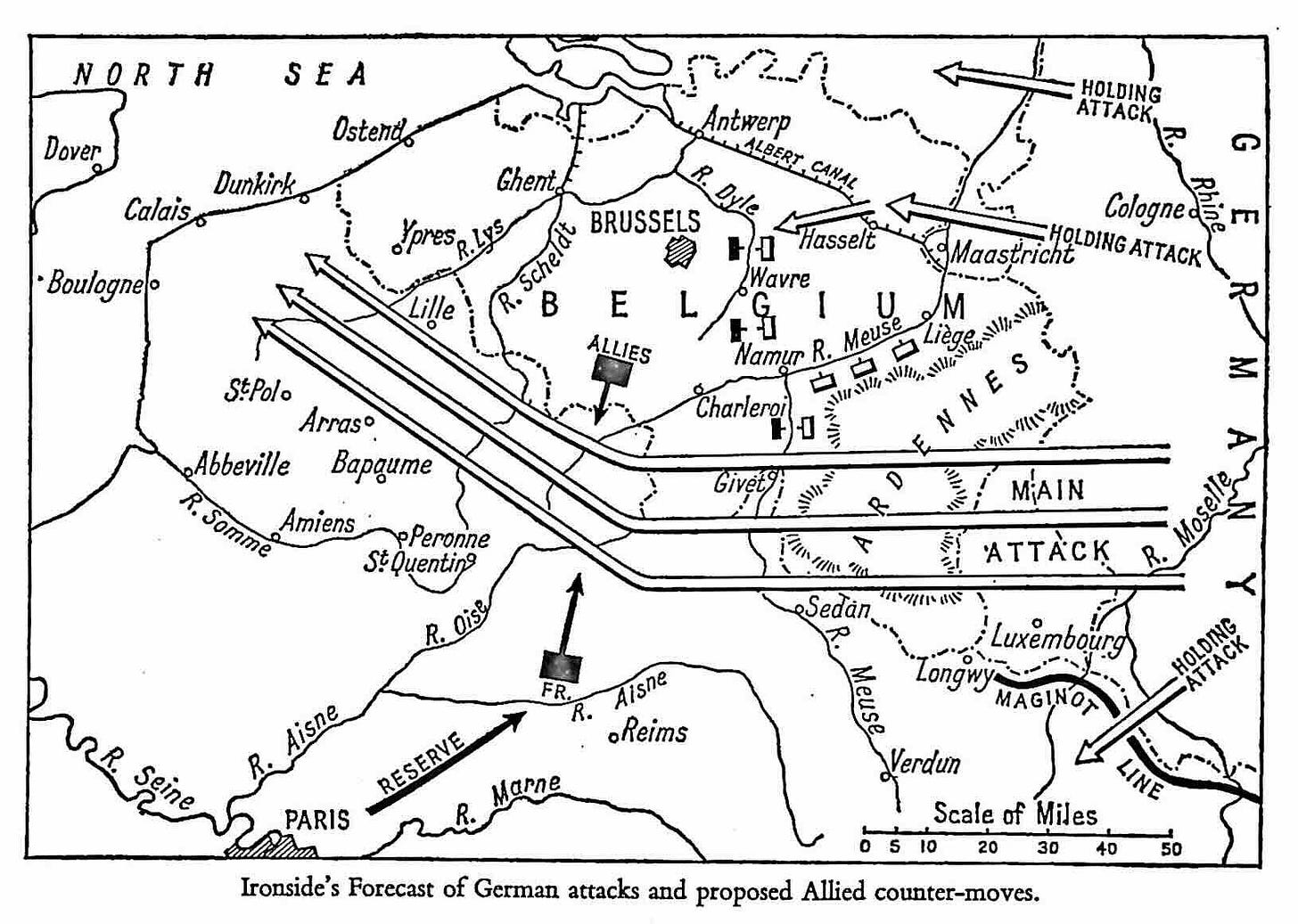"Very grave days indeed."
17th May 1940: The Chief of the Imperial General Staff responds to the news coming from France with a rapid appreciation of the full implications

There is no record, as there is for the French, of the British High Command bursting into tears and falling into panic and despair when the news of the German breakthrough reached them.
Edmund ‘Tiny’ Ironside was 6’4’’ and probably not prone to tears. A boxer and capable rugby captain, he had played for Scotland as a boy. He was also a brilliant linguist, proficient in at least seven languages. He rose from Captain to Brigadier General in World War I, then commanded the Allied Expeditionary Force fighting the Bolsheviks in Russia in 1918.
As Inspector-General of Overseas Forces, he visited Poland in July 1939 and astutely assessed its prospects. He subsequently visted Churchill (then out of office) at Chartwell and they stayed up until 5 am1 discussing the international situation. He was appointed Chief of the Imperial General Staff, head of the British Military, in September 1939. He had been in close liaison with the French since then. In an October 1939 conference with the French High Command, he presented a remarkably prescient analysis of how the Germans might attack in the West:

Ironsides’ diary for 17th May reveals how he revised his thinking during the course of the day. He initially appears to think it may be possible to evacuate the BEF through the western ports of Cherbourg and Brest, if the French can mount a counterattack:


